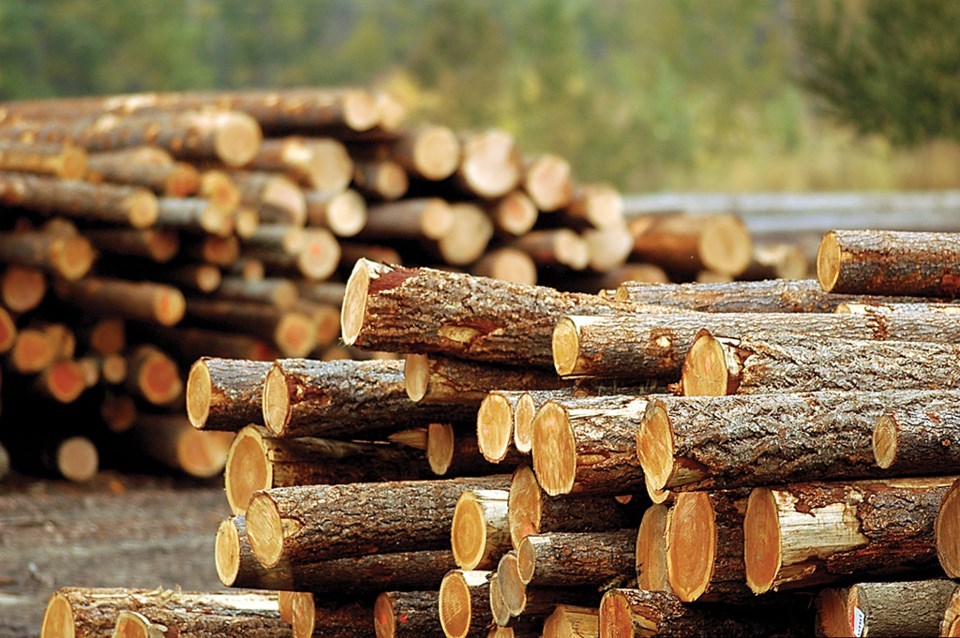John Rustad reacted with anger to Canfor’s announcement that it will .
The Nechako Lakes MLA and BC Conservative leader says the closures are a troubling sign the forestry giants could eventually leave the province entirely unless immediate changes are made to forestry policies.
“This announcement is frustrating, it makes me extremely angry and quite frankly I’m really pissed off at this government,” said Rustad. “They have destroyed two-thirds of our forest sector in British Columbia in just seven years and it’s going to take a ton of work to repair that damage.
“But the first thing that needs to be done is to kick their ass out of government. This government clearly does not care about our forest sector. They’re only concerned about environmentalists and their environmental vote, they don’t care about workers. They keep shifting the landscape and keep making it tough to get decisions. These guys have got to go.”
Closing those two mills will cost the BC economy 500 direct jobs and the multiplier effect could add up to 3,000 indirect jobs lost from industries and businesses that serve and supply the mills. Rustad says that will trickle down to reduced sponsorships in the community, fewer coaches for sports teams and tradespeople being forced to move to other regions to find work.
“The issue here is the consecutive policies they’ve brought in have been hostile to our forest sector, the cost structure they added to the industry, we’re by far the highest-cost producers and the most frustrating part is you can’t get (logging) permits,” said Rustad.
“Up in Fort St. John it takes 3.2 years to get a permit. In Prince George you’re lucky if you can get a permit in two years, and it’s often three years to get a permit. How do you operate in that kind of an environment? This government is hostile to our forest sector and these closures and the damage it will do to workers, to families, to communities is all on their shoulders.”
The two mill shutdowns are the latest in a series of crippling forestry cutbacks that have impacted northern BC.
In May, citing policy changes and increasing regulatory complexity for the timber supply, Canfor closed its Polar Sawmill operation at Bear Lake, 75 kilometres north of Prince George, and also curtailed indefinitely one of the two pulp lines at Northwood Pulp Mill. The company also canceled a planned reinvestment in its already-shuttered Houston Sawmill. All told, that cut 400 direct jobs.
In January this year, West Fraser announced the closure of Fraser Lake Sawmill, costing 175 direct jobs.
In January 2023, Canfor permanently shut down one of its to pulp lines at Prince George Pulp Mill, with a loss of 300 jobs.
In October 2023, Sinclar Forest Products permanently reduced Nechako Lumber in Vanderhoof from two shifts to one, costing 60 jobs.
Rustad figures close to 50,000 forestry jobs have been lost in the province since the 1990s. He said the amount of forest actually harvested in BC has dropped from an average 75 million cubic metres to less than 30 million this year.
“For example, BC Timber Sales, at the Vanderhoof office, which has access to two million cubic metres a year, it’s been three years and they haven’t issued any permits, so that is six million cubic metres off the market,” said Rustad.
“That’s enough wood to keep three mills running.”
Rustad attacked the provincial government for what he says is its failure to act upon on the softwood trade dispute with the United States. On Aug. 19 the U.S. doubled its tariffs on Canadian softwood products from 8.05 per cent to 14.54 per cent and that has made it even more difficult for BC lumber producers to compete. Those tariffs are expected to double again next year.
“This government has done absolutely nothing, they’ve sat on their hands and let this fester,” said Rustad. “There’s $8 billion that’s been taken out of our industry that’s sitting in trust accounts because of these tariffs and the government hasn’t lifted a finger to deal with it.”
One of the changes Rustad plans to unveil in his forestry policy ahead of the Oct.19 provincial election is to shift to a single project, single permit system that will simplify the regulatory process for loggers.
“If you’re operating in a watershed and you’ve got 10 blocks in that watershed over the next five years, that’s one permit, not 20 or 30 permits,” Rustad explained. “You’ve got to drop all this bureaucratic process that’s been put in place. The standards are still going to be there, but you don’t need these layers of bureaucracy and time wasting as part of how we address doing forestry in British Columbia.



